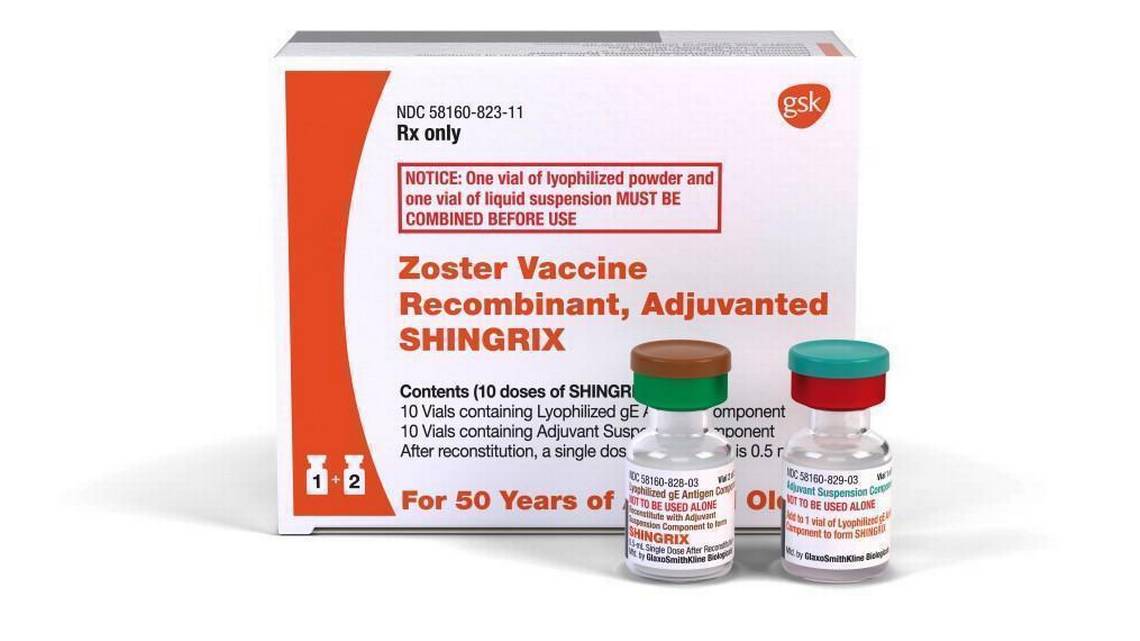
A newly approved shingles vaccine could become the nation’s primary defense against the painful skin disease after the new medication was endorsed Wednesday by scientific advisers to the U.S. Centers for Disease Control.
GlaxoSmithKline’s new vaccine, Shingrix, was approved Friday by the U.S. Food and Drug Administration. It’s only the second shingles vaccine approved in this country, along with Merck’s Zostavax, which has been in use since 2006.
Where the FDA approves medications for public use based on efficacy and safety, the CDC endorses preferred drugs. On Wednesday, the CDC’s Advisory Committee on Immunization Practices met in Atlanta, Ga., and recommended that the CDC endorse Shingrix over Zostavax, and also recommended Shingrix shots for Americans aged 50 and above.
Shingles affects 1 in 3 Americans in their lifetime, and strikes an estimated 1 million Americans each year. The disease is caused by the Varicella Zoster virus, the same virus that causes chickenpox. If you’ve had chickenpox, the virus can lie dormant for decades and become active later in life, causing a painful, itchy rash and debilitating swelling and blisters.
You can’t catch shingles from another person with shingles. But a person who has never had chickenpox could catch chickenpox from someone with shingles. Chickenpox is spread by airborne respiratory droplets, similar to the way the flu virus jumps from human host to human host.
UNC-Chapel Hill medical professor David Weber said the CDC’s advisory committee gave Shingrix a ringing endorsement. Weber attended Wednesday’s hearing as a representative of the Society for Healthcare Epidemiology of America.
“It is unusual for the ACIP to look at a series of vaccines for the same disease and give a preferential recommendation,” said Weber, the Medical Director of UNC Hospitals’ Departments of Hospital Epidemiology and Occupational Health Service, and Associate Chief Medical Officer for UNC Health Care.
Because the chickenpox vaccine was not available until 1995, most people aged 50 and older are not immunized against the virus, said Kathleen Dooling, a CDC medical officer in the agency’s division of viral diseases. As a result, more than 95 percent of Americans have been infected with chickenpox.
People who are vaccinated against chickenpox as children or adults may still require a shingles vaccination when they reach age 50, Dooling said, but a final determination will require medical research. “They may still carry the virus even if they don’t get sick,” Dooling said.
Weber said the chickenpox vaccination not only reduces the risk of infection but also reduces the symptoms for those who become infected. The chickenpox vaccine also reduces the chance of getting shingles in later adulthood, but doesn’t eliminate the possibility. Weber noted that only about a third of Americans are immunized against shingles.
It will take several months for the CDC to formally adopt the advisory panel’s recommendations.
Shingrix can have more severe side effects than the older vaccine, most commonly pain, redness, swelling, fever, headache and upset stomach. GSK said most reactions to the vaccine were mild and short-term, lasting less than three days. Weber said up to 15 percent of those who receive the dual shots of Shingrix will have arm soreness uncomfortable enough to impair daily function for less than three days.
London-based GSK, the global pharmaceutical giant that employs more than 3,000 people in the Triangle, predicts Shingrix will become a blockbuster drug that will generate more than $1 billion in revenue for the company. Shingrix was approved for use in Canada this month and is awaiting regulatory approval in the European Union, Australia and Japan.
In clinical trials, Shingrix was shown to be 90 percent effective, compared to a 50-percent effectiveness rate for Zostavax. Shingrix also showed effectiveness for a longer period of time Zostavax.
The CDC currently recommends shingles vaccinations for people aged 60 and older, whether or not they recall having chickenpox. If the CDC lowered the recommendation to people aged 50 and older, as the scientific panel recommended Wednesday, an additional 42 million people would be eligible for the vaccination. An additional 20 million who have been vaccinated by Zostavax in the United States would also be eligible to be re-vaccinated with Shingrix, as the CDC’s advisory panel recommended Wednesday.
GSK expects to start distributing Shingrix by the end of November, but health insurance coverage is not expected to be in place until mid-2018. A two-shot Shingrix immunization costs $280 if not paid for by insurance.
GSK employs about 3,000 workers at its Research Triangle Park campus, about a third of whom are contractors, as well as 800 at its drug manufacturing plant in Zebulon.
Hi! I am a robot. I just upvoted you! I found similar content that readers might be interested in:
http://www.newsobserver.com/news/business/article180782786.html
Downvoting a post can decrease pending rewards and make it less visible. Common reasons:
Submit